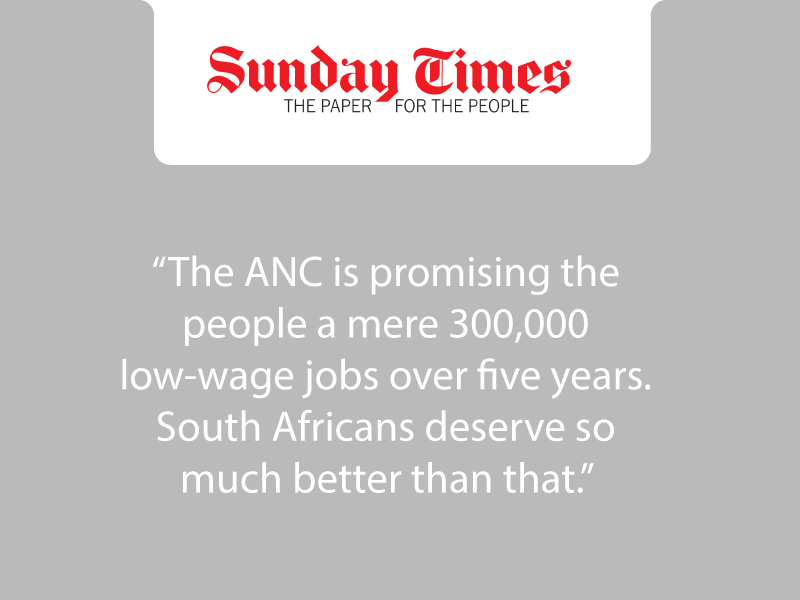
The passing of the new Immigration Act, which replaces the apartheid-era Aliens Control Act, should have been greeted with relief. Instead, the response among those concerned with economic growth has been dismay, disbelief, and confusion.
The bizarre parliamentary process that produced this act reflected deep contradictions among legislators and others about economic growth requirements, the legitimacy of business concerns, and non-racism.
It also revealed some barely disguised xenophobia, and a failure to appreciate the limits to government capacity as an impediment to effective governance and development.
The new act means that skilled immigration will continue to be difficult and slow. This is mainly because it requires the department of home affairs to consult extensively with other departments – nortably labour, and trade and industry – in creating an elaborate set of quota and skills certification requirements, and then to enforce these complicated rules. These requirements are supposed to ensure that no South African will lose a job to a skilled immigrant. This is a huge, impossible, and wasteful task. Employers almost never prefer a skilled immigrant to an equivalently skilled South African, as the total cost of employing a South Africa citizen will probably be lower. Skilled immigrants can create jobs.
In modern economies, formal qualifications now bear very little relationship to what work people end up doing. Why waste time trying to forecast our needs on the basis of inaccurate and out-of-date information when the country is desperate for the skills needed to run development projects, start new businesses, manage large enterprises, and train South Africans?
Slow, pointless bureaucratic procedures that have prevented foreigners from bringing their knowledge and energy to South Africa in the past will not be alleviated, and in some respects are likely to be reinforced.
South Africa has two closely linked skills shortages. One is a shortage of productive skills and practical competencies, and the other is a shortage of people who are employable, self-employable, or readily trainable by employers in a knowledge- , technology- , and technique-based economy. These shortages have now been compounded by two new negative dynamics: emigration and aids.
There are only two solutions available. One is a dramatic upgrading of our educational and training systems. This is vital, but the bold reforms required to equip large numbers of South Africans with the skills our economy needs will take years to implement.
The only short-term policy option is an open-door, market-driven immigration policy, coupled with the aggressive recruitment of skilled people. This approach is an essential ingredient in the success of the longer-term education and training option that will create more home-grown skills, as we desperately need foreign teachers in our educational institutions.
The view that skilled immigrants prevent South Africans from finding jobs should be emphatically rejected. The opposite is true. Researchers estimate that every skilled professional, directly or indirectly, generates numerous unskilled jobs. Foreign entrepreneurs create new wealth and taxes. Each new skilled immigrant will create jobs for South Africans simply by going about their business, buying goods and services, and paying tax.
Ultimately, South Africa will need a bold new immigration act that creates an open door for skilled people and entrepreneurs. Capital criteria for business permits should reflect the reality that entrepreneurs come in many sizes from large multimillion rand investors to the smallest entrepreneur with just enough to start a family business. In the short term, regulations under the current act should go as far as they can to ‘open the door’. The act’s reliance on a quota system will not make this easy. Nevertheless, correctly framed regulations could go a long way towards reducing the damage.
Guiding principle
The guiding principle of the regulations should be to allow entry to any person whose skills, aptitudes, experience (lifelong learning), and previous occupations show that they will be able to earn a living in the private sector, pay taxes, and consume commercial goods and services. If this principle is followed, the regulations will serve the national interest in economic growth and job creation. Equally, in the very unlikely event that too many people, or the wrong kinds of people, are allowed in, regulations guided by this principle could be rapidly altered to deal with the problem.
To what extent the new regulations will meet South Africa’s needs remains to be seen. In the end, however, South Africa needs a bold new immigration act that really does create an open door for skilled people and entrepreneurs. In the meantime, subject to the less than ideal legal framework created by the act, immigration regulations should go as far as possible towards creating conditions for growth and investment by a very large inflow of skilled and entrepreneurial migrants.
The new act reflects considerable ambiguity and confusion in the ruling party about the importance of skilled immigration. This is despite president Thabo Mbeki’s commitment in February last year to review immigration laws to ‘enable us to attract skills into our country’.
An important opportunity has been fumbled. It reflects a failure of leadership by the president, cabinet, and the anc on an important national issue. South Africa is not short of job-seekers. We are short of taxpayers, people who need no support from the state, and people who can create jobs for others. Our immigration regulations, and ultimately our legislation, should reflect this reality.
- Ann Bernstein is the executive director of the Centre for Development and Enterprise. This article is based on the publication ‘South Africa’s new Immigration Act: a salvageable instrument for economic growth?‘ (October 2002).




